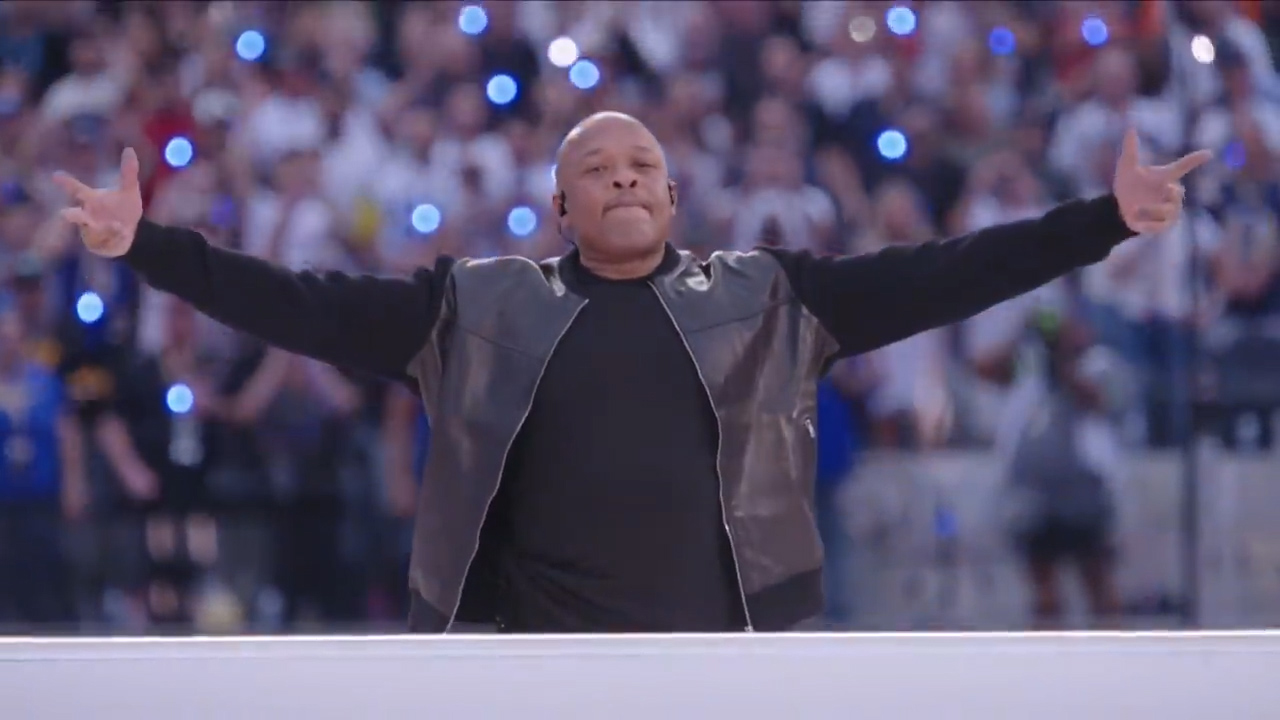
As explained in the music history documentary series Hip-Hop Evolution (2016–), today’s hip hop doesn’t just have an effect on the mainstream—it is the mainstream. Its status as a phenomenon can be seen everywhere in society, in popular culture, sports, business—even politics. Still, many people insist it hasn’t been given due recognition. Hip hop often finds itself excluded from important and meaningful events in the music industry, like awards ceremonies. There may not be any irrefutable evidence, and it’s impossible to know exactly what the organizers’ motives are, so it might be disregarded as a conspiracy theory propagated by overzealous hip hop fans, but a careful look at the reality of the situation reveals it isn’t a stretch by any means. Over the past decade or so, seeing hip hop in the Big Four categories at the Grammys has been like finding a needle in a haystack. Even now, the number of hip hop artists honored in the Rock and Roll Hall of Fame for their legendary achievements and massive contributions to the course of music is slim. And it’s been only a short time since hip hop artists started to be seen headlining major, multi-genre music festivals—and (during the American National Football League championship game) the Super Bowl halftime show!
The incomparable concert, watched every year by over 100 million people worldwide, has been uniquely ungenerous toward hip hop artists. The show has featured pop music since 1991, when New Kids on the Block played, but hip hop hasn’t been the focus even once in over 30 years. That made this most recent halftime show at Super Bowl LVI a historically significant moment in hip hop: The show centered exclusively around hip hop for the first time, with the iconic Dr. Dre and his friends invited to perform.
With the hip hop world given the reins at last, they needed a celebrated artist capable of doing justice to the enormous weight of this historical first, and Dr. Dre—with Snoop Dogg, Mary J. Blige, 50 Cent, Kendrick Lamar and Eminem in tow—came through with a performance befitting the dignity of the occasion. Dre entered on a sprawling, stark white control room of a set that looked like the inside of a spaceship straight out of a sci-fi movie. With a crowd of 70,000 spectators, the electric thrill throughout SoFi Stadium as he rose from his seat with arms spread wide to the rising intro of “The Next Episode” lasted long after the performance came to a close.
Dre opened the performance with the song, assisted by Snoop Dogg, with whom he’d led the West Coast hip hop revival. The show moved onto “California Love,” a track by the late 2Pac that Dre had produced and featured on, followed by 50 Cent’s sudden upside-down entrance for his song “In da Club”; the eternal Queen of Hip Hop Soul, Mary J. Blige, performing “Family Affair” and “No More Drama”; “m.A.A.d city” and “Alright” by Kendrick Lamar, another Compton darling, also with Dre; Eminem emerges rapping a few bars from the chorus of “Forgot About Dre” before moving into “Lose Yourself”; and the whole thing closes with the return of Snoop to join Dre performing “Still D.R.E.”
Although the performance was less than 15 minutes long, it showcased a condensed history of Dr. Dre and West Coast hip hop through several well produced scenes. The energizing performance of “California Love” marked 26 years to the day since its release on 2Pac’s classic album All Eyez on Me back in 1996. Leading into “Still D.R.E.,” the halftime show’s finale, Dre sat down at the piano to play a bit of “I Ain’t Mad at Cha,” another of 2Pac’s classics, in honor of the late, great rapper. Just prior to this, Eminem, having finished his song, took a knee in tribute to former San Francisco 49ers quarterback Colin Kaepernick. Throughout the 2016 season, Kaepernick refused to stand during the national anthem and instead knelt in protest of racially motivated police brutality, sparking a widespread cultural conversation and generating controversy. Eminem was reigniting Kaepernick’s neglected message and the ever-present social issue. Such images left a lingering impact, along with Blige’s brightly burning performance, Lamar’s performance that borrowed the phrase “Dre Day” (a Dre classic) in one of his always-thrilling performances, and Anderson .Paak drumming away with a face more full of delight than anyone else.
There was one more behemoth of hip hop behind organizing and pulling off the show: Jay-Z. His agency Roc Nation, which has directed the halftime show for the past few years, joined forces with Dre to put on the best, most entertaining and most meaningful hip hop show possible. Regrettably, we didn’t get to hear “Nuthin’ but a ‘G’ Thang”—which was practically written as the textbook on gangsta rap/G-funk—or any solo performances from Snoop, but it was still an unbelievable gift to hip hop fans around the world. And just like that, “Dre Day” continues on.
Unauthorized reproduction and distribution prohibited.